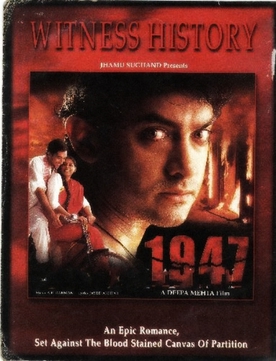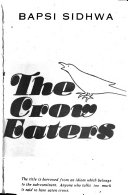Related Research Articles

The Parsis are an ethnoreligious group of the Indian subcontinent adhering to Zoroastrianism. They are descended from Persians who migrated to Medieval India during and after the Arab conquest of the Persian Empire to escape religious persecution and conversion to Islam. The Parsi people comprise the older of the Indian subcontinent's two Zoroastrian communities vis-à-vis the Iranis, whose ancestors migrated to British-ruled India from Qajar-era Iran. According to a 16th-century Parsi epic, Qissa-i Sanjan, Zoroastrian Persians continued to migrate to the Indian subcontinent from Greater Iran in between the 8th and 10th centuries, and ultimately settled in present-day Gujarat after being granted refuge by a local Hindu king, Jadi Rana.
Pakistani literature is a distinct literature that gradually came to be defined after Pakistan gained nationhood status in 1947, emerging out of literary traditions of the South Asia. The shared tradition of Urdu literature and English literature of British India was inherited by the new state. Over a big time of period a body of literature unique to Pakistan has emerged in nearly all major Pakistani languages, including Balochi, English, Pushto, Punjabi, Seraiki, Sindhi, and Urdu,.

Bapsi Sidhwa is a Pakistani novelist of Gujarati Parsi Zoroastrian descent who writes in English and is a resident in the United States.

Deepa Mehta, is an Indian-born Canadian film director and screenwriter, best known for her Elements Trilogy, Fire (1996), Earth (1998), and Water (2005).
Murree Brewery ; PSX: MUREB) is a Pakistani multinational manufacturer of alcoholic and non-alcoholic beverages. It is Pakistan's largest and oldest producer of alcoholic products. In 2015, it produced 10 million litres of beer, along with hundreds of tons of single malt whisky, vodka and brandy. Founded by the British in 1860, it is a publicly traded company listed on the Pakistan Stock Exchange, and its products are exported to India and Bangladesh. In 2014, the company established a flagship store on Park Avenue, in Manhattan, New York City. In 2013, it was named by Forbes as one of Asia's 200 best companies.
Minocher Bhandara, popularly known as Minoo, was a Pakistani businessman and former minority representative and member of the National Assembly of Pakistan (MNA).

Earth is a 1999 Indo-Canadian period romance drama film directed by Deepa Mehta. It is based upon Bapsi Sidhwa's novel, Cracking India, set during the 1947 partition of India. Earth is the second instalment of Mehta's Elements trilogy, preceded by Fire (1996) and followed by Water (2005). It was India's entry for the 1999 Academy Award for Best Foreign Language Film.
Ervad Godrej Sidhwa was born in Karachi, Pakistan, and studied the Avesta, Pahalvi, Persian, & Pazend languages, as well as Ancient Iranian literature at M.F. Cama Athornan Institute, Andheri, Mumbai, for six years. He was initiated into the Zoroastrian priesthood by going through the Navar and Maratab initiation ceremony from Iranshah Atash Behram, Udvada, India. His initiation as a priest accounts for the "Ervad" ('Reverend') title.

The official religion of Pakistan is Islam, as enshrined by Article 2 of the Constitution, and is practised by approximately 96.47% of the country's population. The remaining 3.53% practice Hinduism, Christianity, Ahmadiyya Islam, Sikhism and other religions.
Deena M. Mistri was an educator from Pakistan.
The Elements trilogy of films by Indo-Canadian filmmaker Deepa Mehta deals with controversial issues of social reform on the Indian subcontinent. Fire, the first release in 1996, dealt with issues of arranged marriage and homosexuality in the patriarchal culture of India. Earth, released in 1998, dealt with the religious strife associated with the partition of India and the formation of Pakistan in the mid-20th century. Water, released in 2005, was the most critically successful of the three, and dealt with suicide, misogyny, and the mistreatment of widows in rural India.

The Ministry of Minority Affairs is the ministry in the Government of India which was carved out of the Ministry of Social Justice and Empowerment and created on 29 January 2006. It is the apex body for the central government's regulatory and developmental programmes for the minority religious communities and minority linguistic communities in India, which include Muslims, Sikhs, Christians, Buddhists, Zoroastrians (Parsis) and Jains notified as minority religious communities in The Gazette of India under Section 2(c) of the National Commission for Minorities Act, 1992.
Rustam Sohrabji Sidhwa was a judge on the Supreme Court of Pakistan as well as one of the original eleven judges of the International Criminal Tribunal for the former Yugoslavia.
Goshpi Avari is a Pakistani Asian Games gold medalist in sailing. She won the medal with her husband, Byram, at the 1982 Games. She was the first and, until 2010, the only Pakistani woman to have won a gold medal at a major international competition.
Pakistani English literature refers to English literature that has been developed and evolved in Pakistan, as well as by members of the Pakistani diaspora who write in the English language. English is one of the official languages of Pakistan and has a history going back to the British colonial rule in South Asia ; the national dialect spoken in the country is known as Pakistani English. Today, it occupies an important and integral part in modern Pakistani literature. Dr. Alamgir Hashmi introduced the term "Pakistani Literature [originally written] in English" with his "Preface" to his pioneering book Pakistani Literature: The Contemporary English Writers as well as through his other scholarly work and the seminars and courses taught by him in many universities since 1970's. It was established as an academic discipline in the world following his lead and further work by other scholars, and it is now a widely popular field of study.
Isphanyar M. Bhandara is a Pakistani politician who was a member of the National Assembly of Pakistan from June 2013 to May 2018. He was also a member of the Manifesto Committee Pakistan Muslim League-N as an Expert on Minorities Rights in Pakistan. He was born in Murree Brewery State situated on Ayub National Park Road Rawalpindi. He got his MBA Administration Degree from USA.

Mithan Jamshed Lam (1898–1981) was an Indian lawyer, social activist and the Sheriff of Mumbai. She was the first Indian woman barrister and the first Indian woman lawyer at the Bombay High Court. She was a member of the All India Women's Conference and served as its president in 1961–62. The Government of India awarded her the third highest civilian honour of the Padma Bhushan, in 1962, for her contributions to society.

Neevin Mosque, or Neevin Masjid, is a 15th-century mosque built during the Lodi dynasty of the Delhi Sultanate. It is located in the ancient Walled City of Lahore, in Pakistan's Punjab province.

The Crow Eaters is a 1978 comic novel by Bapsi Sidhwa. The novel is about a Parsi family. The book was Sidhwa's debut novel.
References
- 1 2 Birth certificate, OTRS Ticket:2016020610009956
- ↑ Saadia Qamar (6 June 2014). "From homemakers to bakers". The Express Tribune . Retrieved 7 February 2016.
- ↑ Jamil Khan (4 December 2013). "'Mr Bean' adds spice to PAD festival". The Gulf Today . Retrieved 7 February 2016.
- ↑ Javat, Shazia Hasan (22 March 2015). "Parsis in Pakistan: Beloved but left behind".